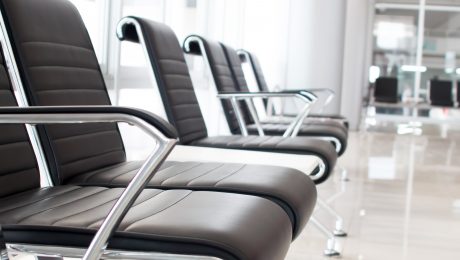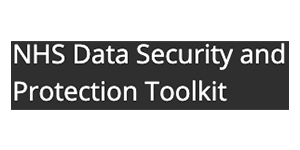On G-Cloud 9
On cloud 9, or, “In a state of blissful happiness” is perhaps a little overstating it, but we are delighted to be on the government’s G-Cloud 9 Procurement Framework from 22nd May 2017. [Note G-Cloud 9 was withdrawn in July 2018. We are now on its successor G-Cloud 10.]
Phrases like “procurement framework” tend to bring me back down to earth with a bump, but I think this one could mean something really good, and I quote from the gov.uk Digital Marketplace:
“Buying services through frameworks is faster and cheaper than entering into individual procurement contracts.”
Right, so there’s one agreement set up between the Crown Commercial Service and us, following all the OJEU rules and thoroughly tested for compliance with all the relevant standards: NHS IGToolkit, Clinical Safety standards for software SCCI 0129/0160, secure hosting and communication on N3, you name it, all the painful, boring but essential stuff.
Yes it has been painful and I pay tribute to all the GP Access team and our partners who have done such a grand job in getting us there. It is right and proper for the process to be thorough as patient safety and information security are paramount. We have seen too much lately of what can go wrong, yet we must not lose sight of the great benefits that technology can enable for our health service.
In the first couple of weeks we’ve seen over 700 patients use the new askmyGP to get help online. One emailed Concord practice at 9.14am last Monday, a time when patients in most practices would still be hanging on the phone, trying to get through. She already had her problem sorted by the GP and just wanted to say thank you for the outstanding service.
Now that’s what really gets me on cloud 9.
Harry Longman
07939 148618
PS Do explore our new askmyGP website, where all the services under What We Do are on the framework.
PPS The application process did have its lighter moments, my favourite being where you have to agree to the statement that “all the above statements are true”. Unbeatable logic.
- Published in News
Open all hours
What an exciting week in NHS IT! Sorry I’ve been hiding for a month but we have all been intently focussed on launching version 2 of askmyGP. It draws on our evidence from 46,000 patient episodes in version 1, but the software and delivery mechanism are all new.
So if I said the rollout of the new system went exactly to plan, all pigs were fed and ready to fly, you’d call me a liar and you’d be right.
We were ten days late going live and patients had to go back to the telephone. We had one of those unexpected problems that got through all the testing and didn’t appear until the real world stomped in. We had to spend the weekend fixing it.
Then it worked. Already we’ve had good feedback from the first 300 patient uses, and some great suggestions from the first 7 practices which we have already implemented.
So what’s new? I won’t do too much detail for now but the step in thinking is all about flow. We know about demand, we know it’s predictable and very nearly flat (BMA refers again to “soaring demand” in its manifesto. They haven’t bothered to measure) but we know there’s no simple way to cut demand (we’ve tried like everyone else, and it doesn’t work).
The demand is the demand. But we can do much better if we make it flow, from entry to completion. The new askmyGP is designed exactly to enable that frictionless flow.
Delivered not on NHSmail but over N3, the new system is designed for greater security and reliability…
And then of course Wannacry happened… we switched askmyGP off on Friday night as a precaution but found no evidence of any incursion, so came back on Saturday lunchtime. Already a couple of dozen patients have entered demands at the weekend. They know not to expect help until Monday, but that helps the practice smooth out the morning rush on the phones.
Aha, the beauty of being open all hours, but not there all hours.
Can’t wait to tell you more, it is so exciting, but it’s getting late.
Harry Longman
PS Not one but two practices complained to me that demand has been very low the last couple of weeks. I put it down to three causes.
1. Weather. In a demand led system, you get the immediate benefit of the sunshine dividend. If you’re booked up three weeks in advance, you never notice.
2. Randomness. Knowing your average demand and planning capacity for a bit more means that most days are less busy than planned.
3. Anxiety demand has dropped – both practices launched six months ago and patients have got used to the idea that there’s no need to plan illness in advance – the GPs are there when you need them.
Happy days! Now try getting Pulse to publish that.
- Published in News
4/5 hospitals need to improve. And the other one?
Couple of mornings ago I was just enjoying my porridge when the Today programme told me that four out of five hospitals need to improve! Spluttering, I had to leave the porridge to cool while I took to Twitter.
No, it’s not the four I’m worried about, but the other one which presumably thinks it doesn’t need to improve. All of us need to improve – companies large and small, hospitals, GPs, parish councils and governments. A minute later Radio 4 was telling us that 2/3 police forces were performing well while 1/3 weren’t. Utter nonsense.
The real scandal is not the hospitals, or the police forces, but the thinking which labels performance as binary good/bad, pass/fail, and it’s this system of rating which infects government from top to bottom. People moan about CQC for its charges, its bureaucracy and bother, but the heart of the evil it spreads is the way that it rates its victims.
Measurement is crucial to improvement, but it matters what you measure and how. The best place to start is with what matters most to patients, and if you don’t know, think about the last time you wanted help from your GP. Yes, it’s how fast you can get help. Not the only thing that matters by any means, but you’d have thought that at least the multi £million CQC would have realised.
Recently we’ve produced datasets for two practices, one labelled by CQC as “good” and the other “inadequate”. It’s clear from the former that patients are being turned away almost all day from 8.45, and are struggling to make appointments. The latter, while ticked off for records on staff checks and vaccines, has a policy of never turning patients away, and it’s clear from their data that they don’t, accepting calls right up to closing time.
Do you want a tick box culture in general practice, or one with a passion for patient service at its heart? I know what I want, and if the government wants it then nothing short of a total rethink of CQC will get there.
Harry Longman
- Published in Comment
Dutch study shows 12% demand reduction
“When the Facts Change, I Change My Mind. What Do You Do, Sir?” There’s a lengthy discussion on who said it first, perhaps not Keynes or Churchill, but never mind.
I’ve been saying that there is no evidence of patients being diverted from seeing their GP through online help, and now that’s changed.
Our evidence is from two hard tests to see whether askmyGP can reduce demand. The first is to measure overall demand (by analysing all consultation records for practices in time series over months) and we’ve seen no measurable change up or down, a valuable finding in itself. Demand doesn’t increase even when 20% of it now arrives online. Nor have we seen overall reductions.
The second test is at the patient level, where we offer symptom specific NHS Choices information to patients. Many view this and find it helpful, but very few are deflected from consulting: we measure this continually, so far only 30 out of 38,000 episodes.
Then this Dutch study arrives, high quality evidence of 12% overall demand reduction. Enormously interesting, because the Dutch registered list and capitated system is similar to ours in the NHS (though insurance funded). The reduction was over 2 years and the result not only of the technology but also a complex intervention of GPs advising and encouraging their patients to use it.
But the technology matters too. It’s notable that while NHS Choices is also very popular, there is no evidence of demand reduction as achieved by thuisarts.nl. It was created by NHG, the Dutch equivalent of RCGP. The differences between the two websites may appear subtle, but the fact is, one of them works.
Our aim with askmyGP has always been to make it easier to manage demand, and it’s delivering. One practice manager told us this week, “can’t tell you how helpful the online system is”.
But reducing demand has been an aspiration, subject to finding something that works – perhaps we are now a little closer.
Some of you reading this may be in a position of power and influence. With these new facts, I know what I’d do.
Harry Longman
- Published in Evidence
Should patients be heard but not seen?
Dealing as I do with GPs week after week I admit to a twinge of envy that I will never personally be able to help a patient as a doctor, while they get the privilege every day.
But we get a little something from the feedback patients leave on askmyGP, and I wanted to share with you everything that’s come in the last 24 hours. Each one carries a story, and they are typical of recurring themes over the last two years.
They range from the simple, for which I’m grateful:
“Excellent facility.” male 54
to the more specific:
“Well structured questions to analyse symptoms etc.” male 62, sciatica
solving a real problem for many stressed parents:
“Much better as can use at any time and also don’t have 2 keep trying 2 get through on the phone in the morning” Parent of 3 year old, earache
and towards the other end of a lifespan, relief about the:
“Option for relatives of elderly patients.” on behalf of a 96 year old
Improving access without increasing surgery hours, and the importance of rapid response:
“This system worked well for us the first time we used it. We emailed out of hours but got a fast response as soon as the surgery opened.” male 81
Lastly something rather special, helping the clinical encounter itself by changing the channel:
“I get nervous talking about personal matters – this way the Dr can see what they are dealing with prior to speaking with me” female 44.
The desire to help one another runs deep in the human psyche, and I think that is why, above all the cacophony of crisis, the long term studies of job satisfaction always feature GPs near the top.
Don’t talk yourselves down, and don’t dwell on the latest “GP-as-victim” blog in the columns of Pulse. Margaret McCartney writes powerfully in this week’s BMJ on the intrinsic value of long term relationships which GPs enjoy with their patients, unique not only among the professions but specific to general practitioners.
Treasure it, enjoy it, guard it.
Very best,
Harry Longman
PS Many more have enquired since last week about how to get Resilience funding for their practice to improve service and workload. We are doing our best but it seems time is tight, so please get in touch soonest.
PPS I’m a big fan of Julian Patterson’s NHS Networks blog and this week’s consultation on STPs is a must. Light up a grey day!
- Published in Evidence
Dear Mrs May
I wrote last week to Mr Hunt and sat by the phone all weekend, but it appears ministers are not offering a proper out of hours response so I have little choice but to go direct to Emergency PMQs.
Your headlines: “a large number of surgeries are not providing proper out of hours care – and patients are suffering as a result because they are then forced to go to A&E.”
GPs have a contract since 2004, mostly GMS or PMS, which defines their core hours. Simply saying you don’t like it really won’t do. The Telegraph has “Under Mrs May’s plans, GPs will have to be open from 8am to 8pm every day of the week unless they can prove there is not demand in their catchment area.”
We’ve been measuring demand for over five years and I can assure you there is always demand, but we do need a higher level of understanding from our PM, well intentioned and intelligent as you are. Demand out of hours is predictable and perhaps surprisingly low, but covered by out of hours services (as provided for in the 2004 contract).
But you are confusing demand with capacity. We know precisely the profile of demand, by day, by hour, even by minute, we know what is in and out of hours. We also know that spreading the same capacity over longer hours will cut that capacity and increase costs. When Sir Amyas Morse states “They are seeking to improve access despite not having evaluated the cost- effectiveness of their proposals and without having consistently provided value for money from the existing services.” it is well worth listening. His NAO report says extended hours GP costs are 50% higher than core hours. I’ve seen evidence that the true ratio is closer to three times.
Ignoring the evidence you have deeply upset GPs and confirmed the view of many that they are being bashed. I could call this counterproductive but the language you’ll hear over the next few days is going to put such bland terminology in the shade.
I do more data nerdy stuff than emotions, but I want to finish on a note of hope and if you’re prepared to listen, read one thing. Dr Philip Lusty was exhausted and beaten, along with all his colleagues and staff, as I personally witnessed. Now read what happened.
Yours sincerely,
Harry Longman
- Published in Comment
Dear Mr Hunt
You told parliament yesterday that it was time for “an honest conversation with the public about their use of A&E“. Are you up for one too, as Secretary of State?
Unfortunately there is no evidence of honest conversations, cajoling, beating or any other persuasive endeavour having the slightest effect on patient behaviour in seeking healthcare. You may even be stoking demand simply by talking about it (as the Behavioural Insights Team has shown.) Dr Taj Hassan is spot on when he says it’s about the system. As Deming said, 95% of the problem is the system, and that’s where leaders spend their efforts.
You’re fiddling with four hour targets, and the language of targets, but Deming said 35 years ago, “numerical targets must be eliminated”, tellingly calling his book “Out of the Crisis.” It wasn’t until 1992 and after mental torment over what this meant that I personally got it. Well, the next principle is to eliminate exhortations…
It’s crucial to understand the difference between targets and measures, and to Deming (a statistician) measures were absolutely critical. It matters to patients how soon they are seen Mr Hunt, and therefore it must matter to you and all NHS staff: measure the times, the demands and the flow in A&E and strive continually to improve them.
You’ll be asking me how in a minute, but look, read Simon Dodds on how they did it in Luton and Dunstable hospital. There’s a very simple parallel to what they did and our work in primary care: put the senior clinician at the front of the house where the demand comes in. It saves time for the senior clinicians and saves time for everyone else.
I spent yesterday in Riverside Practice, Portadown, NI, on the day they launched their new system. Patients reported an average 39 minutes to be in touch with their GP. 81% said the new system was better. The GPs said it had gone much better than expected, and when they’d cleared the decks, most of them went home early. Someone please pass this on to Helen Stokes-Lampard who is threatening us with 4 week waits.
Wonderful stories came throughout the day. The man who got the GP call in the library. The woman who broke the new rules, turning up in the surgery without calling, but with agonising back pain. She saw the doctor within minutes. Any healthcare system which doesn’t have compassion at its heart is worthless.
Riverside GP has gone from having one of the worst access records in NI to one of the best, overnight. OK, so the preparation took four weeks. OK, so it took a year for the GPs to overcome their fear of change. But they changed overnight.
Leave aside political shocks for a minute, there’s a medical earthquake happening in NI right now, standing primary care the right way up.
It’s such a dreadful shame that NHS England is missing out, but I’m sitting by the phone Mr Hunt.
Yours sincerely,
Harry Longman
- Published in Comment
NHS crisis and cognitive dissonance
So the Red Cross tells us there’s a humanitarian crisis in our NHS hospitals and ambulance services. What reactions does that trigger in your mind?
This is the same Red Cross which is helping those left alive flee the ruins of Aleppo, and in context I don’t know about you but I have a problem with that language. I don’t mean to shrug “Crisis, what crisis?” but the point is that it is so easy to make headlines by building on public perceptions and so hard to challenge them.
Many players within the NHS ecosystem and media thrive on continual crisis but strangely it doesn’t help us to measure, analyse, reflect and redesign. We are addicted to firefighting.
Now I want to raise the subject of cognitive dissonance. If you haven’t yet read Matthew Syed’s “Black Box Thinking” then I urge you to do so: well written, engaging and with a powerful message. (the subtitle about marginal gains doesn’t do it justice. It’s much more about learning from failure).
I’ll declare an emotional “COI” here in that aviation comes out much more favourably than healthcare, and some decades ago I was a tiny cog in the industry at Rolls-Royce aero engines. The difference centres around attitudes to failure: forensic analysis, learning and rapid dissemination in aviation, versus cover up in health. Doctors have admitted to me that that’s a huge fear of failure in medicine, but the problem as Syed so eloquently puts it is that failure happens continually and repeatedly. Aviation by contrast is very open, and very safe.
I’ve talked for some time about the primal fears which keep GPs from change, impenetrable to evidence. But perhaps I’m wrong, it’s more the gap between beliefs about current practice and what we imagine we might have to do – cognitive dissonance.
Does reframing the problem make it any easier to solve? Your thoughts gratefully received.
Harry Longman
PS Counter that crisis thinking with this US doctor’s experience of the NHS as a patient. We must count our blessings vs USA never mind Syria.
- Published in Comment
Christmas Peace Dividend
Method: Telephone GP practice between 11am and midday today 23/12/16 and ask receptionist how busy they are, compared with an average Friday.
Sample: 10 practices throughout UK, 6 England, 2 NI, 1 Scotland, 1 Wales, mix of urban/rural/socio-economic populations. All operate a demand led system, GP telephone response, no pre-booked face to face appts.
Results: 2 say about normal, 2 somewhat quieter, 6 much quieter.
Analysis: Someone please help me with the p-value.
Discussion: Qualitative comments added to the findings, several echoing the view “It’s going really really well here, the patients are very happy, and so are the doctors, so we are too”. “We were expecting a rush, but it’s been quiet all week.”
None of the respondents admitted to wearing a silly hat, though one said she would be this afternoon.
One referred me to the practice manager, who said they were so quiet they’d sent a doctor to help another local practice. (Kidderminster Church St).
Summary: er, most of them are having a really quiet day.
Published: 12:47
* not commissioned, not peer reviewed, non-RCT. The author declares a COI.
————————-
Thank you for all your contributions this year and wishing you the most peaceful Christmas
Harry Longman
PS Learning is one of the joys of the break and Nuffield Trust has put together a wonderful reading list. Delayed half an hour in Belfast last Tuesday I found Matthew Syed’s “Black Box Thinking” – yes, airports can enrich the mind!
And the relevance to our study? Every day we are bombarded with messages of stress, overload, unsustainable soaring tsunamis of demand. So the finding that today is quiet falsifies the dominant view about demand. Do read the book.
- Published in Comment










